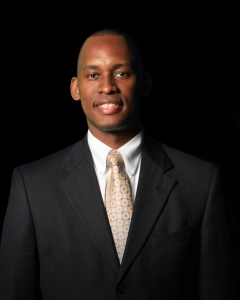 You may not be a lawyer, but you should know your non-profit related legal responsibilities…
You may not be a lawyer, but you should know your non-profit related legal responsibilities…
What legal issues should you be aware of regarding your involvement with non-profit organizations? Wanting to provide executive directors, board members, employees and volunteers with information, we talked with Mr. Van Turner a partner in the law firm of BRITTENUM BRUCE, pllc (“Brittenum Bruce”). Mr. Turner’s law practice is concentrated in the areas of business and commercial litigation, business transactions, government relations, municipal law, and estate planning. Most importantly he is also an experienced board member.
Understanding that no interview can take the place of legal counsel, we asked Mr. Turner to help provide a high-level overview of the types of legal issues that can emerge within the non-profit sector. We started at the beginning, asking Turner what it means to be a “501 c 3” organization and what it takes to start one, and we continued with questions about managing endowments, fiduciary responsibilities, taxes, and who is “really in charge” – the board or the executive director.
Our interview is below, followed by more information about Attorney Turner.
Saad & Shaw: Let’s start at the beginning. What does it really mean when an organization is a nonprofit organization? What is a “501 c 3” organization?
Attorney Turner: A nonprofit association is a corporation or corporate entity which is not primarily organized to make a profit. In fact, nonprofits are organized and operated exclusively for religious, charitable, or educational purposes. The “501 c 3” language comes from the United States Internal Revenue Code and section which defines the types of organizations which are exempt from federal income taxes. In essence, for profit corporations must pay federal income taxes and nonprofit corporations do not have to pay federal income taxes.
Saad & Shaw: Related to that, what does it take to start a non-profit?
Attorney Turner:In order to start a nonprofit, an individual must first complete and file a 1023 Form with the IRS. One must also file the Articles of Incorporation with the Secretary of State in which the company will be headquartered, form a board of directors to govern the company and develop by-laws to govern the board of directors.
Saad & Shaw: What about the board of directors? What are the legal responsibilities of the board of directors? What is their role? Do they run the organization or does the executive director or CEO?
Attorney Turner: The board of directors has a fiduciary obligation to the organization. The legal definition of fiduciary is a person or entity entrusted with the duty to act for the benefit of someone else or something else. A person acting in a fiduciary role must exercise a high degree of care and must subordinate his or her own personal interests in the event that there is a conflict. While the executive director may handle the day to day obligations of the nonprofit, ultimately, the legal responsibility for the organization lies with the board of directors. For example, if the board must decide between what the executive director wants to do and what is in the best interest of the nonprofit, the board has a responsibility to do what is best for the nonprofit.
Saad & Shaw: What should the leadership of a non-profit be aware of when it comes to entering into contracts for goods, services and/or property?
Attorney Turner: The leadership should be aware that he or she is an agent for the nonprofit when entering into contracts. If the board of directors allows the leadership or the officers to negotiate and handle contracts, then everyone must understand that the executive director is binding the nonprofit to the deal. Therefore, if the board later decides that the contract is not good, they cannot come back and rescind the contract without a validly legal reason. The board of directors must make it clear in the by-laws whether it wants to approve every contract or allow the leadership to handle the contracts without board approval. What I usually see is that the board allows the leadership to contract up to a set amount and anything above that amount must be approved by the board.
Saad & Shaw: What about financial management? Are there specific oversights, policies or procedures that need to be in place? What happens if the money just disappears?
Attorney Turner: Yes, of course. A nonprofit is like any other business in that regard. Solid financial management is a must. It is advisable to address a system of checks and balances in the by-laws and to require an annual audit of the financial records. If the money just disappears and the board allows it to happen, then the board will be held accountable along with whoever took the money. If the board had strong procedures and the officers simply stole the money, then the board should probably investigate seeking criminal as well and civil remedies against the bad actor. The nonprofit could also purchase insurance to help cover the cost of theft or embezzlement.
Saad & Shaw: What about gifts and pledges? What should a nonprofit be aware of when accepting a gift or pledge?
Attorney Turner: I suggest that the nonprofit develop a gift acceptance policy. This policy will assist developing a planned and orderly method of knowing which gifts to accept and how to handle the gifts when accepted. For instance, if property is donated to the nonprofit, the nonprofit must develop a procedure for making sure they are receiving good title and that they are not accepting a landmine which would cause more headaches. Also, the policy could assist with spelling out some of the tax issues which may come-up with certain types of gifts.
Saad & Shaw: Is a written pledge really legally binding? If a donor commits to giving a certain amount to an organization, can that person really be held accountable?
Attorney Turner: A written pledge can be legally binding in some states if there is consideration involved. However, this is a state-specific issue and may vary from state to state. Consideration is simply “the thing of value” each party to a contract agrees to give in exchange for what he or she receives. So, for instance, if a nonprofit was going to name a building for someone who pledged a large sum of money and the nonprofit began construction on the project, the court may rule that there was consideration and find that the donor is legally bound to the pledge.
Saad & Shaw: Many of the leaders we talk with are interested in growing an endowment for their organization. Are there specific legal requirements associated with growing and managing an endowment?
Attorney Turner: I would again suggest creating a policy to handle the endowment. One particular issue that I see with an endowment is that the board would likely need to contract with another entity to assist with the financial planning and management of the endowment. The endowment needs to be invested correctly, and the board should have a policy in place to make sure an expert is retained to handle the endowment funds.
Saad & Shaw: What about receiving property from a donor? Or selling property?
Attorney Turner: I believe that the gift acceptance policy should specifically spell out what happens with donated property. Buying and selling property requires much more than executing a simple contract. The title of the property must be analyzed, insurance must be purchased, the proper disclosures need to be made, and the financing, if any, must be analyzed very carefully.
Saad & Shaw: Everyone says nonprofits don’t have to pay taxes. Is this true?
Attorney Turner: Yes, nonprofits are exempt from paying federal income taxes as long as they maintain their charitable purpose, apolitical purpose. I must note here that nonprofits are forbidden from engaging directly in politics. While 501 (c)(3) nonprofit corporations can encourage the franchise of voting by encouraging citizens to vote, they cannot support one candidate or one political party over the other.
Saad & Shaw: let’s talk about the not-so-pleasant possibilities. What about embezzlement and misappropriation of funds? What happens if someone suspects that this is going on? What actions should be taken by the board or executive leader?
Attorney Turner: The board should immediately remove the executive leader from the bank accounts. Further, the board should then request an audit to see what has been misappropriated. Furthermore, the board should also alert the authorities as to what has occurred. The board should also seize the executive’s computer. Even if the executive has deleted emails and materials on the computer, those materials can be retrieved and can assist in trying to figure out what happened with the money.
Saad & Shaw: We have covered a lot of issues in this conversation. Do you have any last words of wisdom for our readers?
Attorney Turner: Remember that the board has a fiduciary obligation to run the nonprofit. This means that if the board does not have the expertise, it should retain the expertise to make sure it is correctly conducting the business of the nonprofit. As the old saying goes, “an ounce of prevention is worth a pound of cure,” and this simply means that taking time out on the front-end to develop solid by-laws and policy and procedures can prevent several issues later on as the nonprofit develops and grows.
Saad & Shaw: Thank you Attorney Turner.
About Attorney Van D. Turner
Van D. Turner, Jr. is a partner in the law firm of BRITTENUM BRUCE, PLLC (“Brittenum Bruce”). Mr. Turner’s law practice is concentrated in the areas of business and commercial litigation, business transactions, government relations, municipal law, and estate planning. Before joining Brittenum Bruce, Attorney Turner was of counsel at Butler, Snow, O’Mara, Cannada & Stevens, PLLC (“Butler Snow”). Prior to practicing at Butler Snow, Mr. Turner served as Associate General Counsel for the Board of Education of the Memphis City Schools and as judicial law clerk for the Honorable Samuel Hardy Mays, Jr., federal judge for the United States District Court for the Western District of Tennessee.
Attorney Turner participates and has served on the board of directors of several legal professional organizations, including the American Bar Association, the National Bar Association, the Tennessee Bar Association, the Mississippi Bar Association, and the Memphis Bar Association. Mr. Turner’s most notable honors include Memphis Business Journal, 2007 “Top Forty Under 40”, Super Law Magazine, Mid-South Rising Stars for 2010 and 2011 in the areas of litigation and government relations, and selection as a Barrister in the Leo Bearman Sr., American Inns of Court. Mr. Turner has also served as an adjunct professor at the University of Memphis, C.C. Humphreys School of Law.
Mr. Turner earned his Bachelor of Arts degree from Morehouse College in Atlanta, Georgia in 1997, with Phi Beta Kappa and magna cum laude distinctions. After serving as an Assistant Teacher of English with the Japanese Exchange and Teaching Program in Yamanashi, Japan, Attorney Turner returned to the United States and attended the University of Tennessee College of Law, where he earned his Doctor of Jurisprudence in 2002. Mr. Turner is licensed to practice law in Tennessee and Mississippi.
You can reach Attorney Turner at vturner@brittenumbruce.com or (901) 271-3794.









